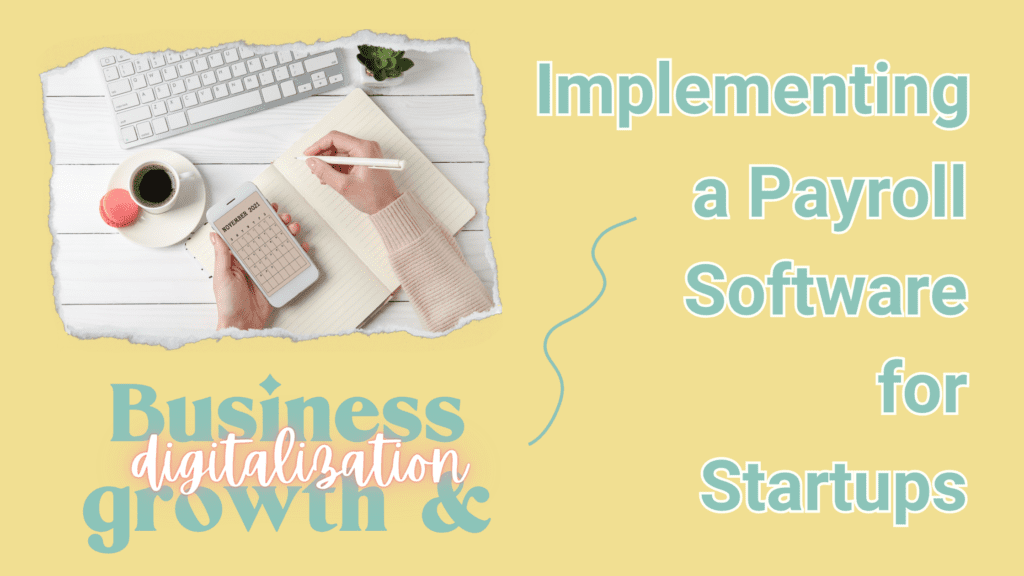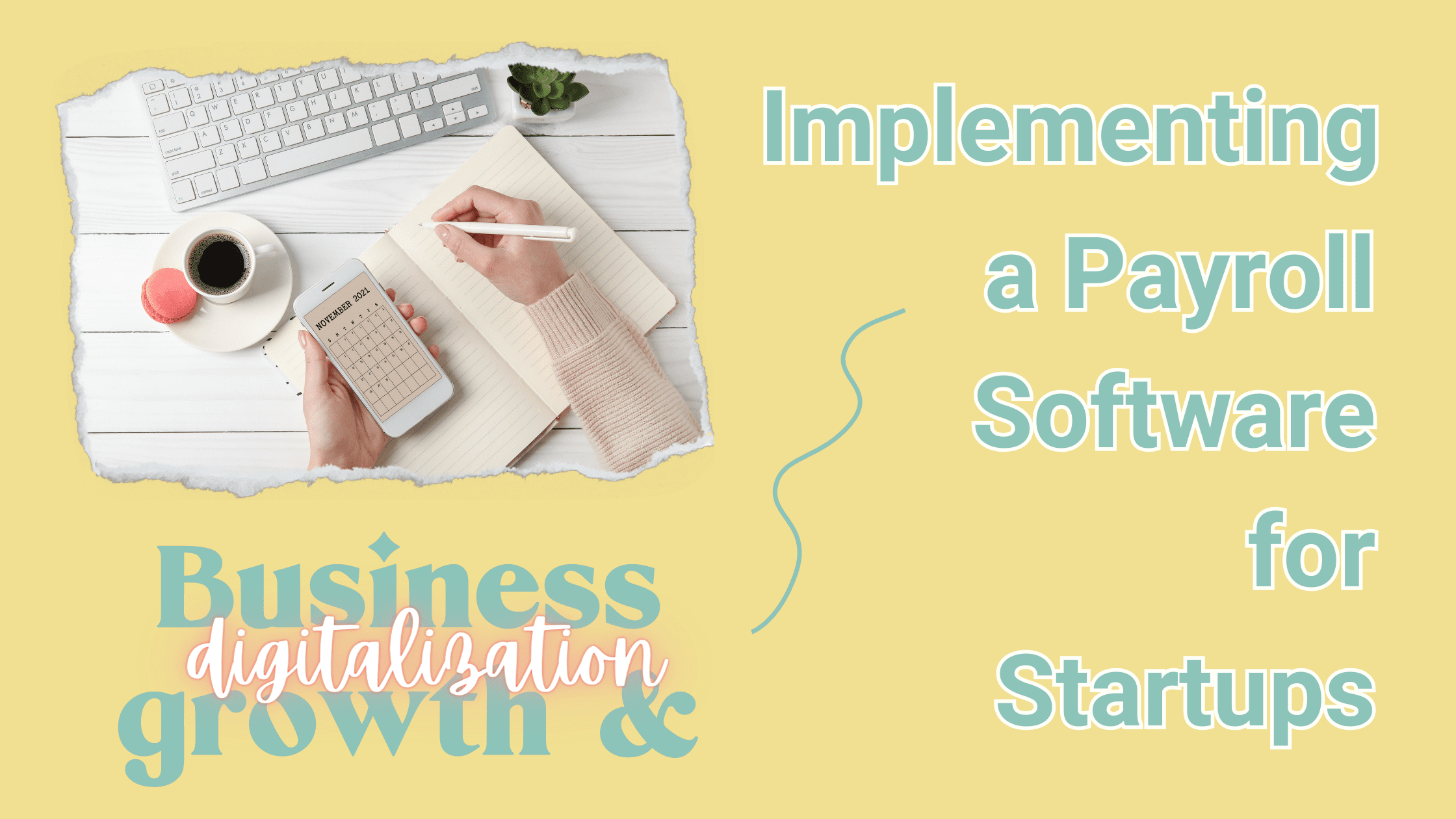As a SaaS founder, you’re more than familiar with the challenges of building and scaling a technology-driven startup in today’s competitive market. However, in the midst of focusing on product development and advertising, payroll management often gets overlooked – which goes in no one’s favor. That’s why, in today’s blog we’re looking at what you need to know about payroll software for startups, and decision factors that are likely to impact your startup’s overall growth.
Approximately 50% of Americans have experienced payroll issues, which is problematic considering that 65% of the workers are living from paycheck to paycheck. Why make things hard on yourself when there’s a simple solution?
If startup owners in the past could manage with sheets and documents, you can definitely manage with the help of advanced payroll software. And to put my money where my mouth is, let’s delve into how to implement payroll software for startups.
Payroll software for startups: How it works
I don’t know about you, but many small businesses still create templates with columns to calculate everything from the employees’ working hours to taxes. This works but it’s not nearly as effective as using payroll software for startups accounting requirements.
Payroll systems are designed with simplicity in mind, and that’s what your startup should be based on. As a SaaS founder, you already appreciate the value of technology, so embracing this automatic way of managing payroll should be a piece of cake.
You know how people often say that tasks have become so automated that we’ll forget how to do them manually, for example, basic math? Well, let me agree to disagree.
The goal of implementing a payroll software for startups isn’t just to replace your manual efforts, but also to free up your valuable time.
It’s true that some might become lazy and only depend on automation. But see, it’s a matter of personal preference. The goal of implementing a payroll software for startups isn’t just to replace your manual effort, but also to free up your valuable time.
That said, payroll systems will streamline the process of managing payroll as well as enhance overall productivity. It’s not only about paying your employees on time but also complying with tax regulations, which is crucial for a startup’s success.
Benefits of implementing payroll software for startups
The benefits of implementing payroll software go beyond just automating the calculation part when managing salaries. It can forever change the way you handle your startup’s finances and human resources. Here’s how this software can help your startup business grow:
- Reduce human errors. Regardless of how experienced your employees are, payroll management is simply too complex. All the tasks that it involves, including tax regulations and precise working hours calculations, are prone to human errors. By implementing payroll software, startups can automate these calculations and improve overall accuracy.
- Save valuable time. Time, time, time. It’s the one thing everyone lacks, especially if you’re a business owner. With the use of payroll software, you can regain the time that would otherwise be spent on manual payroll management.
- Store and access data. Payroll systems make it so much easier to store your data securely in the cloud, eliminating the need for physical storage. Once in the cloud, losing this data afterward is practically impossible.
- Scalability. The goal of every startup is for the business to grow, and the key advantage of payroll software is that it will grow as your business grows. As soon as you start hiring more employees, the software will start managing payroll for a larger team. Not to mention, you won’t need to put much extra effort into it.
- Data-driven decisions. Payroll software will also provide you with real-time data analytics and reporting that can help you make data-driven decisions. And making decisions based on accurate data, means they’re informed and aligned with your business goals.
Now, these are the general advantages of payroll software for startups, we want to get more into the nitty-gritty details – the exact aspects in which the software can assist your SaaS business. +

Keeping up with cryptocurrency tax regulations
Helping you comply with tax regulations is an obvious benefit of payroll software but when it comes to cryptocurrencies, this is a game-changer. I don’t know if you’ve embraced this trend of paying your employees in crypto; what I do know is that many have.
It definitely has its own benefits but it doesn’t come without challenges. And currently, complying with crypto tax regulations is the biggest one. However, you can use Toku to streamline your crypto payroll management and make sure you don’t end up on the wrong side of the law.
Here’s why keeping up with crypto tax regulations can be such a complicated process:
- Evolving Regulations. Abiding by the rules can be difficult sometimes but it’s even harder to abide by rules that aren’t transparent. As governments are trying to adapt to this changing financial landscape, crypto tax regulations are constantly evolving, making it challenging for businesses to keep up to date.
- Various Approaches. Different jurisdictions have different approaches to cryptocurrency taxing, as some consider them a property while some categorize them as a form of currency. China and Saudi Arabia, on the other hand, have banned them completely.
- Record-Keeping. Each cryptocurrency transaction must be carefully tracked for tax regulations, and this becomes a problem if the transactions are too many. But as already mentioned, record-keeping is payroll software’s forte, so problem solved.
- Lack of Clarity. Obviously, the tax regulations surrounding cryptocurrencies aren’t entirely clear. But it’s not only about that. You also have to be aware that not all are familiar with cryptocurrencies. And while all have heard about them, not everyone has used them or understands how they work.
This is why leaving employees to handle cryptocurrency taxes on their own isn’t such a smart idea, and is best done with the help of payroll software.
Crypto compensation provides faster transactions and lower transactional fees but comes with the challenge of tax regulation. On the other hand, payroll software can help you streamline the process and navigate these potential challenges.
HR payroll software
Payroll software can also ease the workload in HR, which doesn’t only help HR professionals but benefits your entire organization. The administrative burden can sometimes be too much, which easily leads to human errors. And we can all agree this isn’t a good thing, especially when we’re talking about sensitive information such as employees’ salaries, taxes, and credit card information.
By implementing payroll software for startups, you help the HR team accurately calculate salaries and taxes, while also providing them with more time to focus on employee development and engagement. The software will also provide you with real-time analytics into how everyone is doing with their jobs in terms of every little aspect – from attendance to employee satisfaction and overall productivity.
As a startup, your HR team is likely on the smaller side. But even if it’s one person, HR professionals play a crucial role in business growth and payroll management, which is why freeing up some of their time by automating processes can help you a great deal.
Enhancing employee engagement
Implementing payroll software will also have a positive impact on how engaged your employees are. Regardless of whether it’s a remote workspace we’re talking about or a traditional office setup, your employees must be motivated. Achieve that and your entire business will flourish.
So, how does payroll software impact your employees exactly?
By seeing how their salaries are calculated, and witnessing no salary issues, they’ll have peace of mind about their earnings. This builds transparency and trust. The financial stress they felt would decrease significantly, which in turn would allow them to focus more on work.
As for HR employees, I’ve already mentioned how payroll software lightens up their administrative burden. However, this also positively affects other employees.
First, they’ll get their salary on time, which will motivate them to do their jobs with satisfaction. Satisfied employees are more than likely to stay with your company and be more productive.
Business growth through payroll software
To put it simply, implementing payroll software for startups creates a domino effect that leads to employee satisfaction and business growth.
It goes something like this – the software reduces potential human errors in salary and tax calculations, ensuring employees are paid the exact amount they’ve earned and more importantly, on time. Without the financial stress, your employees experience higher job satisfaction. Naturally, more satisfied employees tend to be more productive, which ultimately goes in favor of your startup business.
You see how it’s all connected. Such a simple and cost-efficient step can lead to substantial business growth. As a SaaS founder, you’re already deep into the digital world, so you understand the power of streamlining processes. Now, the decision is in your hands.
Author bio
Makedonka Micajkova contributed this piece on payroll software for startups. She is a freelance content writer and translator, always bringing creativity and originality to the table. Being multilingual with professional proficiency in English, German, and Spanish, it’s needless to say that languages are her biggest passion in life. She is also a skilled communicator, as a result of having three years of experience as a sales representative. You can find her on Linkedin.






